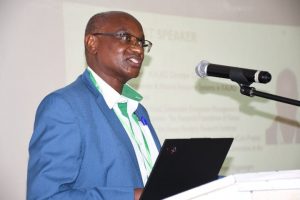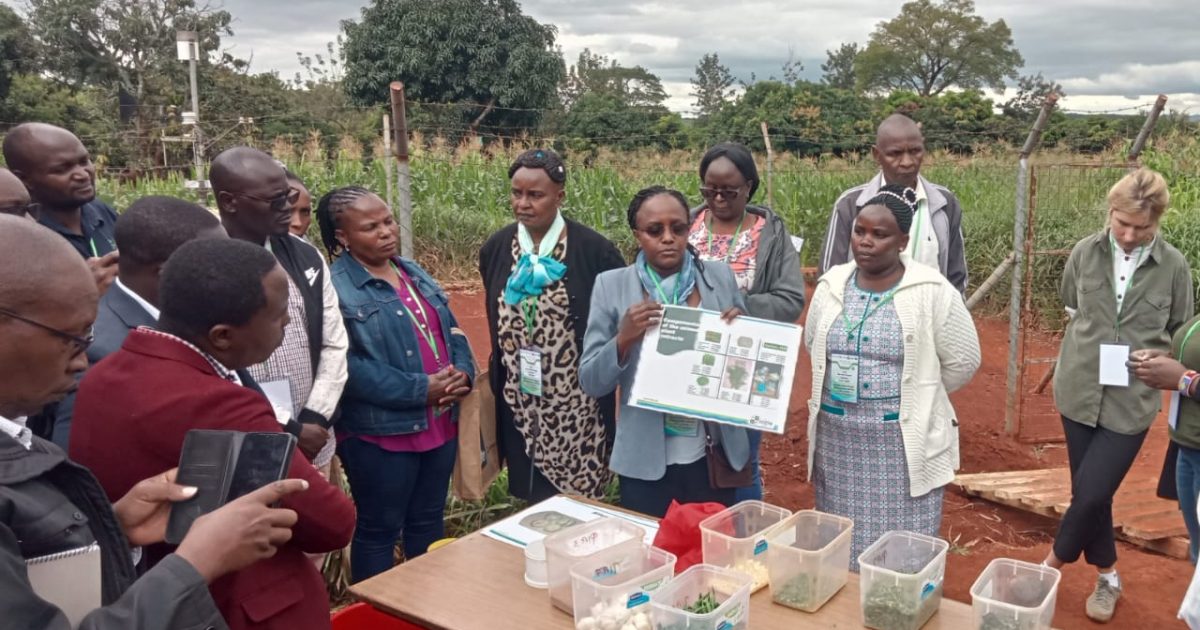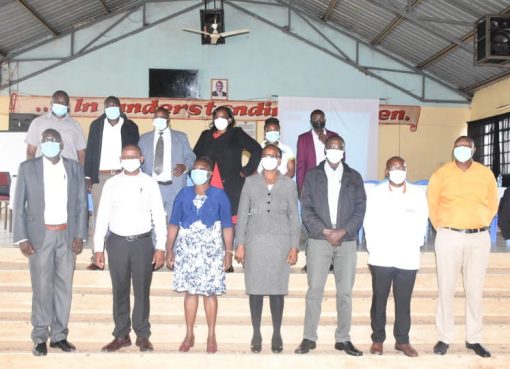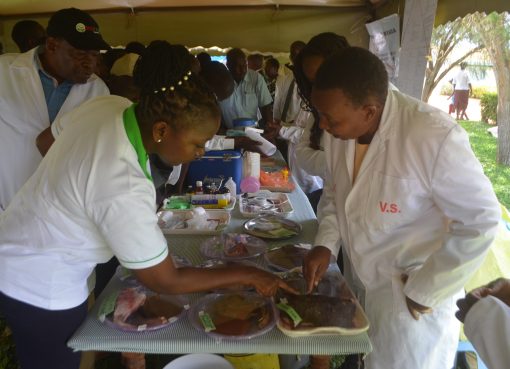A long-term field research trial has shown that organic and conventional systems can be equally productive in terms of their productivity levels over time.
The International Centre of Insect Physiology and Ecology (ICIPE) together with Research Institute of Organic Agriculture (FiBL) of Switzerland, and other partners including Kenya Agricultural and Livestock Research Organisation (KALRO) among others, have been implementing research trials on organic and conventional farming systems since 2007.
The trials carried out under a project dubbed SysCom Kenya, have been comparing the performance in terms of productivity and sustainability of conventional and organic farming using local farming systems.
SysCom Kenya Project Manager at ICIPE Dr Edward Karanja said that 15 years of continuous cropping showed that organic and conventional systems can be equally productive if organic systems are managed holistically and if it is adopted to agro ecological and sociocultural contexts.
Dr. Karanja was speaking during a stakeholders meeting meant to disseminate research findings of the project which has been researched in the last 17 years at KALRO Horticulture Research Institute in Kandara, Murang’a County.

“We have been comparing conventional and organic agriculture at high input level, representing commercial production and low input level, representing subsistence production” said Karanja.
He said the three- year crop rotation cycle of maize, leafy vegetables, legumes and potatoes has been repeated five times. Trial management has been adopted throughout the years especially during 5th rotation.
“Crop yield in a long term organic versus conventional farming system trial since 2007 show that yield gap is partially closed by the adoption of a system approach namely system diversification and high quality inputs and holistic pest management” he said
The SysCom project which is to be conducted for a period of 20 years, has the farming system established in the sub humid agro- ecological zones of Kandara-Murang’a County (at KALRO) and Chuka-Tharaka Nithi County (at Kiereni primary school) in Kenya.
Karanja underscored the importance of biodiversity in maintaining and ensuring optimal agricultural productivity noting that over time we have been losing biodiversity from our systems.
“Organic farming is a suitable alternative and can have additional benefits for soil fertility, biodiversity as well as human and environment health” he said Karanja who is also a postdoctoral scientist.
He further said the project is also implementing a participatory on-farm research (POR) trials together with farmers at Chuka, Kianjugu and Kangari sites, based on the identified challenges experienced by farmers.
“Through a participatory approach 1049 farmers have been trained on the various aspects of farming including compositing techniques, agroforestry, water harvesting, pest and disease control, animal housing and welfare among others” he divulged.
KALRO Director General Dr. Eliud Kiplimo Kireger has said the project has since been used as a reference trial by learning institutions, researchers, farmers and young scientists, seeking to learn about organic farming and independent groups and teams involved in the drafting of organic agriculture policies.
In his speech read on his behalf by KALRO Director of Natural Resource Management Dr David M. Kamau, Dr. Kireger said as an open learning site, the SysCom project has always had a strong capacity building component since its inception receiving over 4900 visitors over the years.
“The research conducted so far aimed at establishing a scientific base for discussions on the performance and potential of conventional and organic agricultural production systems in the tropics” said Kireger
He said in all of these trainings, farmers adopting the technologies and using the information shared report higher productivity for all crops and livestock, better income and profits and greater resilience especially during the drought episodes
Student wise, the project has trained four PhD, six Master in science degree and ten Bachelor in Science degree between 2007 and 2022, while a number of students are presently undergoing training in the current funding phase
SysCom Country Leader in Kenya at FiBL Dr. Milka Kiboi said organic is knowledge intensive, and should be supported through research and extension, as well as a shift in funding schemes.
Dr. Kiboi said the yield gap could be closed between organic and conventional high input systems in the fifth crop rotation.
“Maize, baby corn and common beans have lower yield gap (10 to 15 percent) while vegetables, French beans and potatoes have higher yield gaps up to 60 percent,” she said.
Murang’a County Executive Committee (CEC) Member for Devolution Dr Kiringai Kamau in his closing remarks said the county became the first one in Kenya to adopt an Agro ecology Policy and ACT that has helped the county lobby for organic farming among its residents.
Dr Kiringai said this has seen the county government establish demonstration farms that are used to train farmers on the right agro ecological farming practices and the health benefits of consuming organically grown food.
The Sycom Kenya project is being funded by Coop Sustainably Fund, Biovision Foundation, The Liechtenstein Development Service (LED) and Swiss Agency for Development and Corporation
By Anita Omwenga





